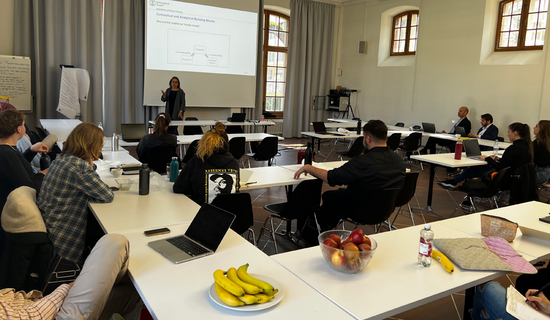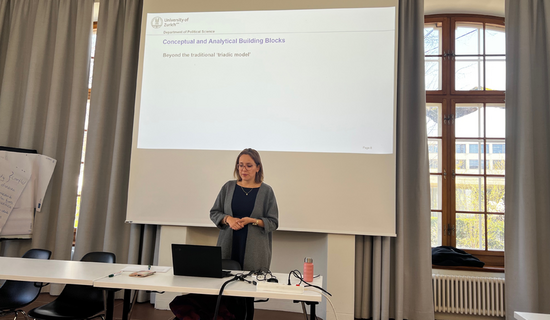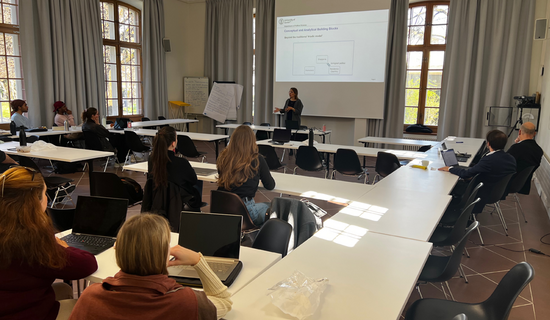/ News, Forschung, Weitere
Working Lunch with Palmo Brunner: «Tibetan Diaspora Mobilization: Navigating Between Democracy and Autocracy»



Palmo Brunner gave an insightful talk at our institute's working lunch on 2 April 2025. She presented core findings from her PhD research on the topic of Tibetan diaspora mobilization.
In her comparative exploration of Tibetan communities in Canada and Switzerland, Brunner unpacked critical concepts of voice, highlighting how varying contexts of reception significantly shape diaspora mobilization. Drawing from theories of «exit and voice» within diaspora politics and transnational authoritarianism, her research nuanced our understanding of «homeland,» distinguishing between «imagined» and «transplanted» homeland identities among Tibetan diaspora groups. Brunner offered compelling insights into how long-distance nationalism operates differently in multiculturalist contexts like Canada compared to assimilationist contexts like Switzerland. She demonstrated that despite Switzerland's robust democratic framework, its assimilationist policies can inadvertently constrain diaspora voices, limiting transnational political action.
Given the current geopolitical landscape, where diasporic political expression faces increasing restrictions, Brunner's research provided timely and essential contributions. The talk sparked a lively and productive discussion, particularly around organizational dynamics within the Tibetan diaspora and the specific characteristics of Switzerland’s immigration model.
Palmo Brunner is a post-doctoral researcher at the Department of Political Science of the University of Zurich. She just completed her PhD on the Tibetan Diaspora – Ralph Weber was her second supervisor – and she will present the core insights of that project in her talk. Her research in comparative politics, international relations, migration studies, social movements, and policy analysis focuses mainly on issues of inclusion, participation, as well as human rights, with special attention towards marginalized communities.



